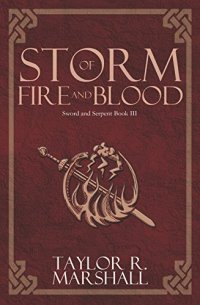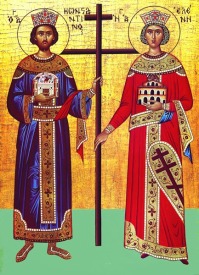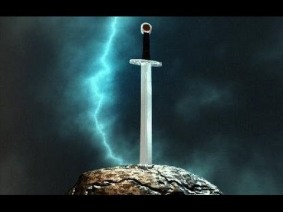With Storm of Fire and Blood, Dr. Taylor Marshall’s epic trilogy centered on the life of Lucius Aurelius Georgius Cyrenicus, a.k.a. St. George, takes its place among Star Wars and The Lord of the Rings as an outstanding trilogy with a resounding, glorious conclusion that will make readers both weep and triumphantly exult simultaneously.
Most trilogies turn on the middle installment. Either, the second book/movie is the best of the three, as is the case with Star Wars, or it seems like it is just holding time for the conclusion, as many critics (quite wrongly) say with The Lord of the Rings. In this case, the Sword and Serpent trilogy has more in common with Star Wars. Narrative themes are shared more closely between these two novels than the sequel that comes between them.
 Best of Three?
Best of Three?
Moreover, the first and third installments somewhat share a similar narrative structure, in that anyone who is familiar with the story of St. George will know how each novel ends. In The Tenth Region of the Night, Dr. Marshall was largely free to tell his own story, adding to the story he told in the eponymous novel of the trilogy, continuing narrative threads and most importantly, developing characters. In both the first and third novels, there is a certain ending that Dr. Marshall must reach and the success of both novels depends on his ability to do so in a way that is both convincing and compelling.
As I wrote in my review of Sword and Serpent, this process seemed rushed in the first novel. However, it is clear that Dr. Marshall has matured as a novelist over the course of writing this trilogy. My only complaint is that the climax of this novel, and therefore the conclusion of the trilogy, seems rather abrupt. I would have liked to see more dialogue and debate between Diocletian and Jurian (as the martyr is called in the trilogy) and a fuller development of the hints that Diocletian and the dragon from the first novel are somehow connected. However, while the rushed nature of the first novel’s storytelling detracted from the overall plot, the abruptness of that of the final novel adds to the pathos and devastating nature of its conclusion.
Historical Research
It is once again evident that Dr. Marshall has been diligent in the research for this trilogy, weaving in facts and personages that of which only someone with a commanding knowledge of the historical context upon which the events of this novel are based would even be aware. I daresay that I am quite knowledgeable on the historical and hagiographical context of the Tetrarchy and rise of Constantine. Dr. Marshall hits all the right points and yet I learned a number of things through further research inspired by my reading of Dr. Marshall’s work. This has led to much use of foreshadowing throughout the novel as well as a powerful employment of dramatic irony.
Constantine

While reading book two, I realized that Constantinus would play more than a supporting role in the trilogy. Since reading that Dr. Marshall was a fan of English Catholic author Evelyn Waugh’s fictional biography of St. Helena, I knew he would include a certain fact in the narrative of the trilogy and sure enough he did. Although this particular minor point flies in the face of accepted scholarship, as a historian, I appreciate that Dr. Marshall does not simply ignore the historical consensus but both responds to and maneuvers around it with authorial adroitness. Once again, Dr. Marshall has done an outstanding job of taking the historical anachronisms present in the legends surrounding his dramatis personae and integrating them into his narrative in a way that makes sense within the historical context of his novels.
King Arthur

The aforementioned narrative fact further connects the Sword and Serpent trilogy with Arthurian legend, which is one of my favorite subjects. One of the most important narrative threads shared by the first and final novels of the trilogy is the importance of the sword Excalibur to the plot as whole and most importantly to the climax of the novel. This was but one of my many favorite parts of the novel, as well as the trilogy as a whole. My least favorite part was always the villain Casca. However, nowhere has the development of Dr. Marshall as a novelist been more evident than in the development of his Casca character and nowhere is this complexity more evident, and unexpected, than in the final novel.
One More Book?
I had thought that the final novel of the trilogy would detail the fates of the other martyrs that Dr. Marshall chose to include in his story of St. George, however; I am glad that, in the end, he does not. This is Jurian’s story, after all, and nothing should detract from his triumph. Perhaps, Dr. Marshall will write a follow up or companion novel to conclude these stories. If he does, I would most certainly read it with great enthusiasm.
You can purchase Storm of Fire and Blood here:
